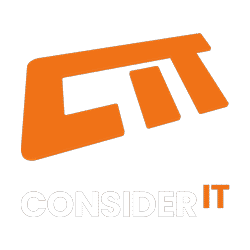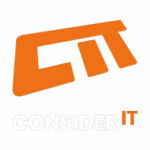What is a digital nomad?
The digital nomad lives and works abroad with no fixed location. These individuals work remotely using public Wi-Fi, smartphones and laptops to access the business tech and information of the company they work for. A digital nomad is not the same as a remote worker as they are generally located in one or two known locations at home or on site.
Enabling employees to adopt a digital nomad lifestyle is a good perk that organisations like Shopify and Spotify offer employees. However, you should consider the risks to your business before hiring digital nomads and implement robust cyber security measures to safeguard your organisation.
What risks can a digital nomad pose?
Consider how digital nomads could be a risk to business continuity as they are moving around the world logging in and out of your business via coworking spaces, cafés, airport or hotels. Best practice cyber security, therefore, is vital to safeguard your business from accidental data loss and malicious cyber-attacks. This is the case for all your employees but there are extra layers of security you should consider before employing a digital nomad.
The cyber security risk and challenges
An organization must work with IT experts to understand the risks and challenges associated with hiring a digital nomad who may store personal and business data on the same device. Without IT support someone could open a back door through personal data or device with lower levels of cyber security.
Before hiring a digital nomad, consider these 7 cyber security factors:
1) The company cyber security policy
The cyber security policy for your company is essential for raising awareness of cyber security and protecting your employees and business from cyber threats. Every employee should know their rights and responsibilities when it comes to cyber security – especially Digital Nomads who access your business from a wide variety of locations.
2) Strengthen cyber security resilience
An IT expert should evaluate the cyber security system across the company and identify any weak areas that could open the door to a malicious attack. For example, a digital nomad may be working in locations that are not listed under ‘safe countries’ or using public WIFI leaving your data vulnerable to malicious attacks. An IT expert can help by:
- Securing devices behind a military grade VPN,
- Using cloud software to safeguard sensitive data
- Safeguarding devices and data with Anti-virus protection
- Adding Multi Factor Authentication
3) Cyber Security Training
Cyber security awareness training will ensure the digital nomad is fully aware of the security measures they should take, including never leaving their devices unattended, using a lock screen, PIN or biometric ID, and adding a device tracker.
4) The Cloud
In addition to providing valuable extra storage, the Cloud also provides enhanced security, which makes it a robust cyber security solution for office-based, hybrid, remote, and of course digital nomads.
5) Secure Business Apps
Secure business apps integrated with your IT systems connect every employee – wherever they are – allowing access to collaboration and communication tools. Included in premium business software packages are Data Protection Controls and Cyberthreat protection to ensure business data on company-owned and personal devices remains safe from malware, unsafe attachments, and suspicious links.
6) Multi-layer of encryption for business data
Multi-layer encryption of data prevents identity theft and monetary losses for companies and customers. The data encryption encodes business data so that only authorised users can read and process it.
7) Virtual Private Network (VPN) services
A VPN establishes a protected network connection when using a public network. That’s why a digital nomad should set up VPN on all devices to protect private and company information when connecting to different public Wi-Fi networks in coffee shops, airports and hotels around the world. That way you can be confident your business data won’t be targeted by hackers and sold on, resulting in disaster recovery and reputational damage.
Consider this:
Ensure your digital nomad has all the right tech in place to connect securely with your business and conduct their daily tasks including:
- Laptop with a long battery life that is slim and portable with fast processing power
- Smartphone with the capability to store information and vast number of business apps to function
- Good quality noise cancelling headphones with microphone to eliminate background noise
Say hello and talk to a member of the Consider IT team today to help to structure and manage cyber security systems tailored for your business.


